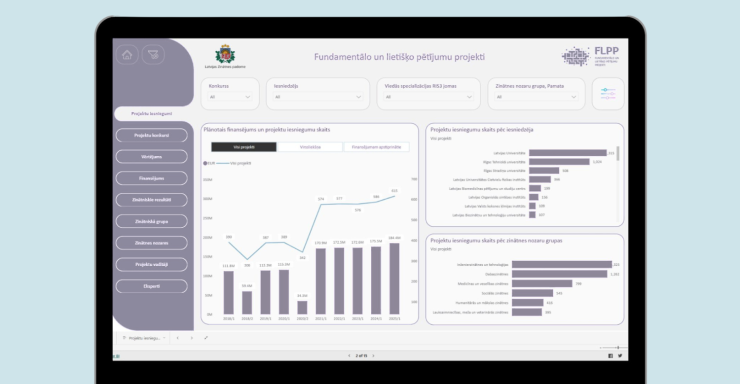To promote the growth of Latvian science based on quality, international competitiveness and development in line with the needs of society, a global assessment of scientific institutions has been launched by the Ministry of Education and Science (MES) initiative. Independent foreign experts will assess research quality, impact and development potential, providing proposals for promoting the growth of institutions and the development of evidence-based science policy in Latvia. The assessment is an essential step towards more innovative science governance and more efficient use of state investments.
On June 10, 2025, the MES concluded an agreement with the company Technopolis on implementing the international assessment. As a result, scientific institutions will receive recommendations from independent experts for the improvement and development of scientific activities in the period from 2025 to 2030.
“The assessment results will provide a basis for improving the quality of institutions’ operations and increasing their international competitiveness. Comparing the results of the 2013 and 2019 assessments, significant progress is visible in all scientific sector groups,” says Jānis Paiders, Acting State Secretary of the Ministry of Education and Science, Deputy State Secretary for Human Capital, Science and Innovation Development.
The assessment will provide a comprehensive, high-quality and independent analysis of the development of scientific activity over the past six years based on principles recognised in the European Research Area. Experts will assess the activities of institutions by analysing self-evaluation reports, bibliometric data, interview results and on-site visits. The quality of research, impact in specific scientific sectors, economic and social significance, institutional infrastructure and development potential will be assessed.
The results obtained will be used in the planning and implementation of evidence-based science, technology development, and innovation policies, as well as in strengthening the country’s competitiveness.
39 scientific institutions – both universities and research institutes – are participating in the assessment. A total of 61 areas of scientific activity will be analyzed, as several prominent universities, representing various scientific fields and sub-fields, have submitted several self-assessment reports (from two to eight).
This assessment is particularly important for higher education institutions, namely, the requirements set out in the Law on Higher Education Institutions regarding the quality of scientific activity and the provision of doctoral study programmes are directly related to the assessment obtained. Similarly, the results of previous international assessments are taken into account when allocating basic science funding.
The methodology developed within the framework of this assessment will also be used in international future evaluations of scientific institutions until 2031, when the assessment function will be transferred to the Latvian Science Council.
The international assessment of scientific institutions is financed by the ERDF project No. 1 implemented by the Ministry of Education and Science. 1.1.1.1/1/24/I/001 “More efficient and smarter implementation and management of Latvian science policy”, with 748 thousand euros (excluding VAT) allocated for this purpose.


